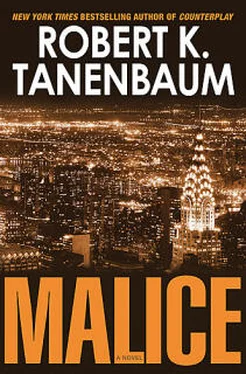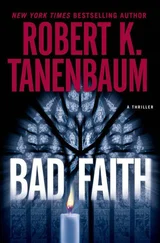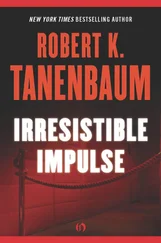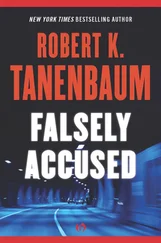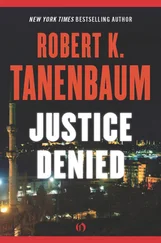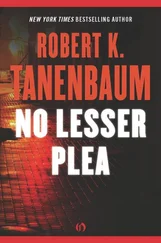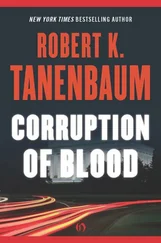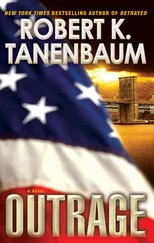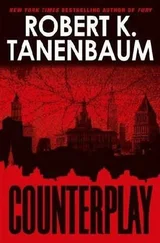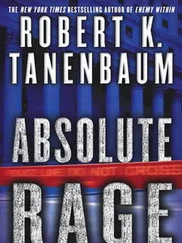Robert Tanenbaum - Malice
Здесь есть возможность читать онлайн «Robert Tanenbaum - Malice» весь текст электронной книги совершенно бесплатно (целиком полную версию без сокращений). В некоторых случаях можно слушать аудио, скачать через торрент в формате fb2 и присутствует краткое содержание. Жанр: Криминальный детектив, на английском языке. Описание произведения, (предисловие) а так же отзывы посетителей доступны на портале библиотеки ЛибКат.
- Название:Malice
- Автор:
- Жанр:
- Год:неизвестен
- ISBN:нет данных
- Рейтинг книги:4 / 5. Голосов: 1
-
Избранное:Добавить в избранное
- Отзывы:
-
Ваша оценка:
- 80
- 1
- 2
- 3
- 4
- 5
Malice: краткое содержание, описание и аннотация
Предлагаем к чтению аннотацию, описание, краткое содержание или предисловие (зависит от того, что написал сам автор книги «Malice»). Если вы не нашли необходимую информацию о книге — напишите в комментариях, мы постараемся отыскать её.
Malice — читать онлайн бесплатно полную книгу (весь текст) целиком
Ниже представлен текст книги, разбитый по страницам. Система сохранения места последней прочитанной страницы, позволяет с удобством читать онлайн бесплатно книгу «Malice», без необходимости каждый раз заново искать на чём Вы остановились. Поставьте закладку, и сможете в любой момент перейти на страницу, на которой закончили чтение.
Интервал:
Закладка:
Robert K Tanenbaum
Malice
Prologue
November 17, 1603 Westminster, England
"THOU ART A MONSTER!" the prosecutor roared out his accusation and pointed at the defendant as the judges and jurors in their satin doublets and embroidered waistcoats shifted uneasily in their seats. "Thou hast an English face but a Spanish heart!"
The defendant, Sir Walter Raleigh, remained calm despite the worst insult to someone who had spent much of his life fighting against Spain. But, forty-nine years old, his hair and the distinctive goatee shot through with gray, he now stood accused of treason.
"Let me answer for myself," Raleigh demanded.
"Thou shalt not," Prosecutor Sir Edward Coke thundered back.
Raleigh turned to the jury. "It concerneth my life," he pleaded, though he knew the men before him were not sympathetic to him personally or interested in a fair trial.
The hearing was a specialized sort of court procedure. In later years, it would be inaccurately referred to as a Star Chamber, a fifteenth-to seventeenth-century English court comprised of judges appointed by the Crown. The Star Chambers, so named because the courtrooms were decorated with stars, were notorious for being conducted in secrecy and were given to arbitrary procedures. They were a convenient way for the Crown, and its supporting nobles, to get rid of rivals and enemies both real and perceived.
What Raleigh faced was actually a "special commission of oyer and terminer." Similar to the Star Chambers, the commissions had been created for the sole purpose of trying people accused of treason. However, unlike a Star Chamber, juries sat on these commissions and weighed what evidence was presented to them. The trials were also supposed to be governed by the rules of law, and the proceedings were followed with great interest by the general public. However, the method and outcome were still heavily weighted in favor of the Crown's wishes.
The prosecutor, Sir Edward Coke, would someday be noted in legal circles as a man of substantial courage who in his waning years actually stood up to the Crown on behalf of English common law, which would become the basis of the American legal system. But at this time, he was not well liked by the general public because of his involvement two years earlier in convicting the popular Lord Essex of treason on orders of Queen Elizabeth. On the other hand, Raleigh was not universally liked by the common man either.
Soldier, ship's captain, adventurer, poet, and courtier, Raleigh was one of the most famous men of his time in both his own country and among England's enemies, especially Spain, whose treasure ships from the New World he'd plundered on behalf of his Queen and himself. He was also one of the wealthiest men in England.
With his taste for fine clothes and armed with charm and wit, he made a dashing knight in Elizabeth's court-with a reputation as a ladies' man-and occupied a special place in the heart of the Queen. Legend had it that he had once laid his cloak over a mud puddle so that Elizabeth would not have to dirty her royal feet. But it was his charms with the ladies that also got him in trouble with Her Majesty when he married one of her maids of honor-the lovely, and much younger, Bess Throckmorton-without the Queen's permission. The Queen had him thrown into the Tower of London, but she eventually relented when she realized that the couple truly were in love.
Her Majesty's court was notorious for its intrigues and plots, with the various courtiers vying against one another for the position as her favorite. Lord Essex, Robert Devereux, a descendant of King Henry VIII, had been one of Raleigh's chief rivals.
Devereux was a hero to the masses for his military successes against the Spanish and also a favorite of the Queen. However, he saw himself as deserving of the throne and was accused-with reason-of conspiring against her with King James VI of Scotland.
Tried by Coke, Devereux was convicted and executed in February 1601. It was this execution that also would cast Raleigh in a bad light with the public. Although he had nothing to do with the trial, he held the title of Sheriff of London, which meant that he had the duty of presiding over the execution. The public saw this as a devious way to remove a rival, and he was reviled for it.
In 1603, Raleigh's fortunes took a definitive turn for the worse when the Queen died. Soon thereafter, none other than King James ascended to the throne. And not long after that Raleigh was himself arrested for treason-accused of plotting with his friend Lord Cobham and with Spain against James.
When the trial began that morning, Coke was faced with a dilemma; he had very little evidence, only an unsigned letter supposedly written by Cobham that accused Raleigh of being part of the conspiracy. On the other hand, the commissions of oyer and terminer were not known for their objectivity. The judges were selected from officers of the state-nobles and judges appointed by the King and his councillors, all with a stake in the survival of the current political structure, and therefore antagonistic toward anyone who might be a threat to the King or their positions.
There was no attempt at impartiality for Raleigh's trial. The commissioners, or judges, included Secretary of State Sir Robert Cecil, Sir William Waad, who was Raleigh's jailer, the Earls of Suffolk and Devonshire, Lord Wotton, Lord Henry Howard, and Sir John Stanhope, many of whom disliked Raleigh and had envied his status with Elizabeth, or held him partly responsible for Essex's death. They sat with the Chief Justice of the King's Bench, Sir John Popham, who hated Raleigh, as well as the Chief Justice of the Court of Common Pleas, Sir Edmund Anderson, and Justices Gawdy and Warburton.
The jury was handpicked in advance. Comprised of four knights, four esquires, and four gentlemen, this deck of King's men, too, was stacked against the accused. Yet, when offered the chance to challenge the seating of any juror, Raleigh shook his head. "I know none of them, but think them all honest and Christian men. I know my own innocency and therefore will challenge none."
Coke opened the trial by pointing to Raleigh and sneering, "I will prove you the notoriest traitor that ever came to the bar."
"Your words cannot condemn me," Raleigh responded easily. "My innocency is my defense. Prove one of these things wherewith you have charged me, and I will confess to the whole indictment, and that I am the horriblest traitor that ever lived, and worthy to be crucified with a thousand thousand torments."
"Nay, I will prove all," Coke promised, and introduced the unsigned statement of Cobham implicating him in treason.
When he got the chance, Raleigh pleaded to be allowed to answer the charges by calling the only witness against him, Cobham, to the stand. "My Lords, let my accuser come face-to-face and be deposed."
Raleigh knew that if he could get Cobham on the witness stand, he might have a fighting chance. While he was in the Tower of London, a letter wrapped around an apple was thrown through the window. It was signed by Cobham and recanted the earlier accusation. If Cobham testified to that in court, public opinion would surely swing in his favor, Raleigh thought.
However, Raleigh was not allowed to confront his accuser, or call any other witness who might have vouched for him. In fact, only one witness was called to the stand during the entire trial and that by the prosecution. His name was Dyer, and he claimed that he'd once visited a merchant's house in Portugal where he was asked by an unknown gentleman if King James had been crowned yet.
"And I answered, 'No, but I hoped he should be so shortly.'"
According to Dyer, the gentleman then said, "He shall never be crowned, for Raleigh and Cobham will cut his throat ere that day come."
Читать дальшеИнтервал:
Закладка:
Похожие книги на «Malice»
Представляем Вашему вниманию похожие книги на «Malice» списком для выбора. Мы отобрали схожую по названию и смыслу литературу в надежде предоставить читателям больше вариантов отыскать новые, интересные, ещё непрочитанные произведения.
Обсуждение, отзывы о книге «Malice» и просто собственные мнения читателей. Оставьте ваши комментарии, напишите, что Вы думаете о произведении, его смысле или главных героях. Укажите что конкретно понравилось, а что нет, и почему Вы так считаете.
